
The most vital element that you’re likely missing is water. Here’s how to tell if you’re getting enough! You can thank us later.
Thanks to science teachers, we grew up knowing that water makes up about two-thirds of our body and is thus vital to our survival. According to an article in the Journal of Biochemistry, water makes up about 73% of the brain and heart. It also makes up nearly 83% of the lungs, almost 65% of the skin and close to 80% of muscles and kidneys. Even our bones consist of about 31% of water.
Not getting enough water in a day can lead to dehydration.
What does that mean?
It means the fluids excreted (via exhaling breath, sweat, urine and stool) exceed the fluids ingested. Mild dehydration is classified as a loss of less than 5% of body fluids. Severe dehydration (more than a 10% body fluid loss) can lead to serious physical and mental issues. In extreme cases, it could also lead to death.
As a fitness enthusiast, the phrase “drink plenty of water” likely sounds like a broken record. But staying hydrated is not as simple as it seems. Many of us drink what seems like lots of water when exercising or being outdoors, but it’s not something we think about daily. Health experts advise the average male drink three liters (about 13 cups) of water a day. They say that the average woman should drink 2.2 liters (about 9 cups) a day.
You can become dehydrated without even realizing it. But, there are a number of warning signs that show your body is lacking water. It’s vital to notice these signs to ensure you stay hydrated and don’t become a victim of dehydration.
10 Warning Signs of Dehydration…
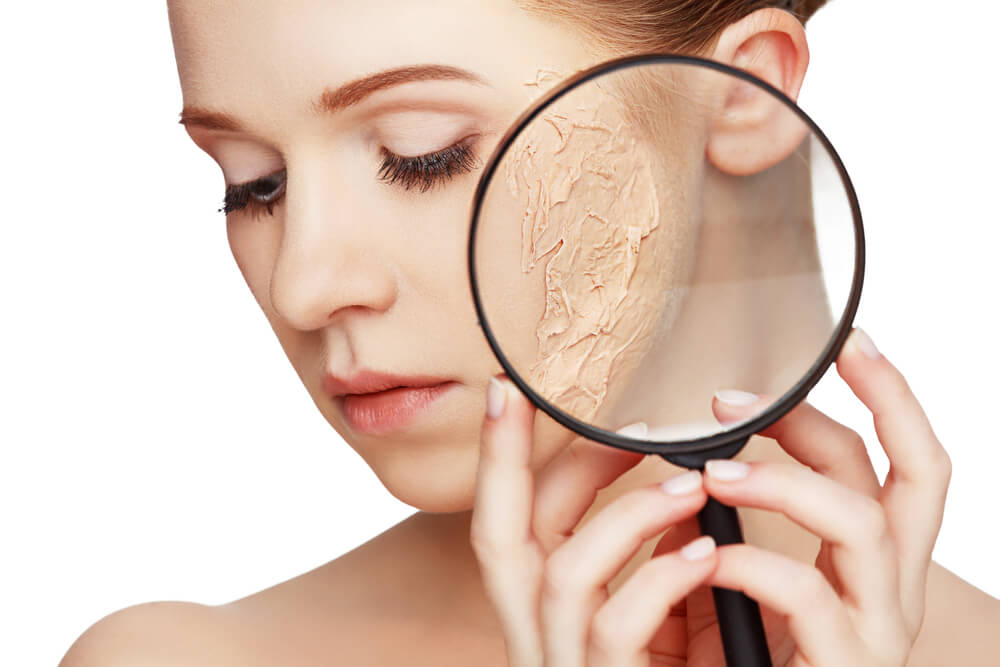
#1 Dehydrated Skin
Dehydrated skin, not to be assumed as dry skin, is often one of the first symptoms that indicate your body is not getting enough water. When you become dehydrated, your body prioritizes and sends water where it’s most needed, which is the brain, the circulatory system and other vital organs. The skin is the first organ to feel the effects of dehydration.
While dry skin stays fairly constant, dehydrated skin tends to come and go depending on the season, your hobbies, and, of course, your water intake. Unlike dry skin, dehydrated skin feels dry but produces a normal amount of oil and can be described as dry underneath, but oily on top. This is a result of the lack of moisture in the skin. Hydrated skin will appear smooth and plump and will bounce back easy.
Here’s a simple test to find out if your skin is dehydrated: Lightly pinch the loose skin on the back of your hand, between your knuckles and your wrist. Lift the skin up and release it. If the skin immediately springs back into place, your skin is well hydrated. If it takes a few seconds for the skin to fall back into place, you’re most likely dehydrated.
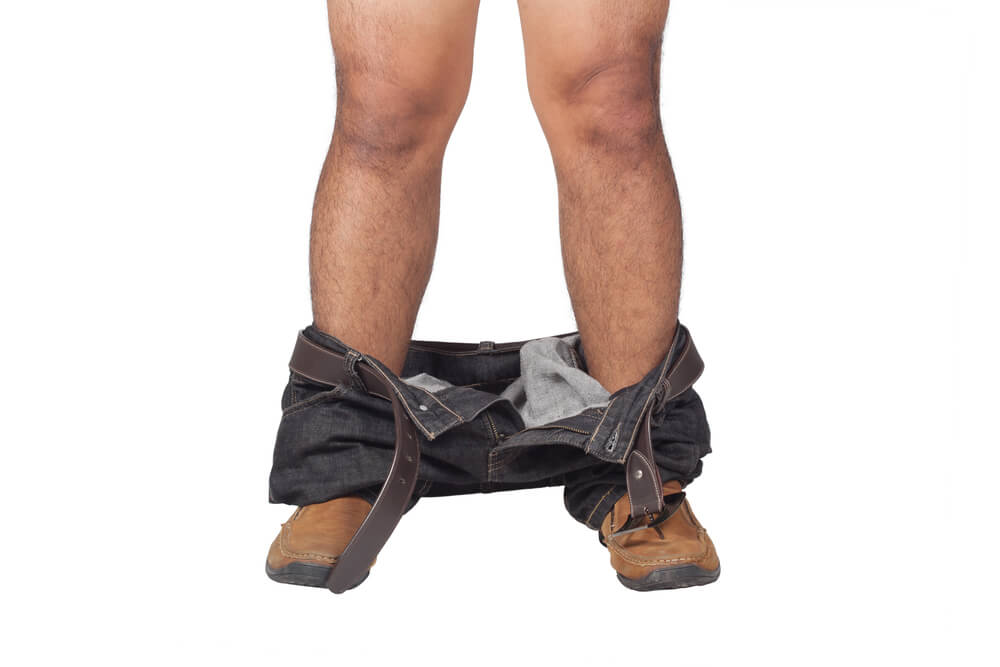
#2 Low Urine Output and Dark Urine
Low urine output, also called oliguria, occurs when there is insufficient blood flow to the kidneys (the organs that extract waste from fluids and form urine). Oliguria is clinically classified as urine output that is less than 400 ml (about 1.5 cups) per day in adults. This is common with dehydration because blood flow decreases when your body doesn’t get enough water.
Changes in urine color can also be a sign of dehydration. Lighter shades of yellow indicate you are well hydrated. The darker your urine is, the more dehydrated you likely are. Clear urine indicates you’re probably drinking more than you need to. But, over-hydration rarely causes health issues unless you’re forcing yourself to drink much more water than you need to.

#3 Headaches and Dizziness
Dehydration leads to your brain tissue losing water weight. This causes the brain to shrink and retract from the skull. It triggers pain receptors surrounding the brain and results in a headache or lightheadedness. The lack of water also reduces blood flow, decreasing the amount of oxygen that reaches the brain. The blood vessels in the brain then dilate. This prompts them to swell and inflame, making the headache or dizziness that much worse. Because many things cause a headache, it can be hard to tell if dehydration is the culprit.
According to a study published by the U.S. National Library of Medicine, 1 in 10 interviewed adults experienced dehydration headaches and said the headache was worsened by physical activity such as bending down or walking. Almost 65% of the study subjects found relief from their headache within 30 minutes by drinking an average of 500 ml of water. Another 32% found headache relief after one to three hours by drinking an average of 750 ml of water. The remaining 3% required sleep in addition to fluid intake.
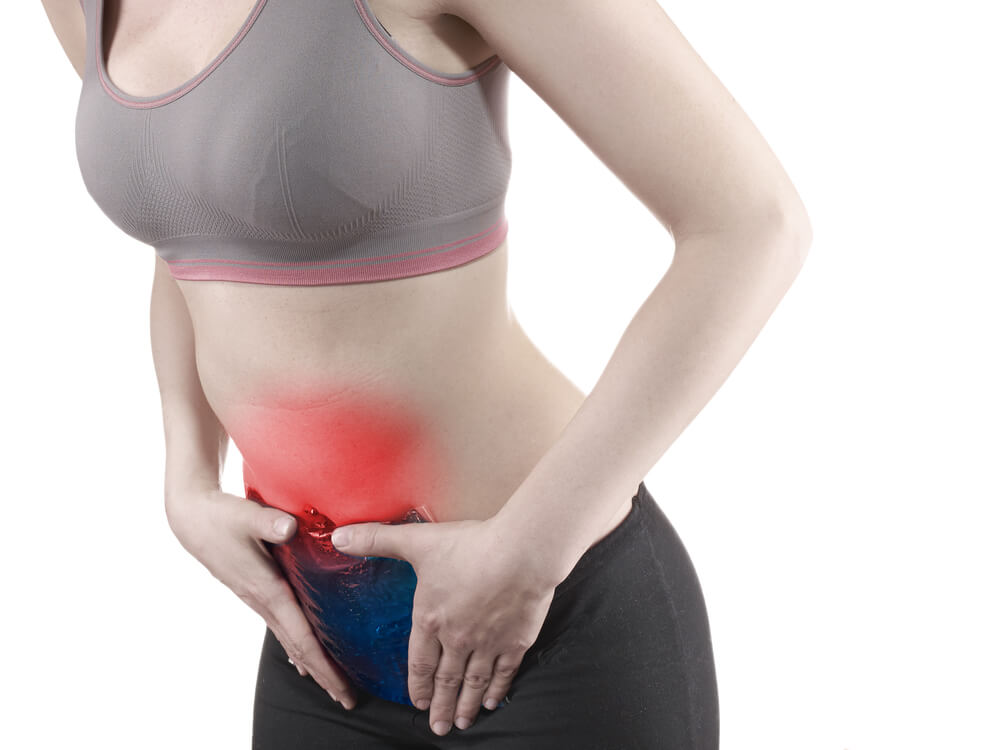
#4 Constipation and Digestive Issues
According to a study of eight healthy adults who received more then 2,500 ml of fluid per day one week and less than 500 ml of fluid per day another week, stool frequency and weight were significantly lower during the week of decreased fluid intake. The study showed that insufficient water intake increased cases of constipation in healthy adults. Some individuals were focusing on how to get rid of water weight, and therefore leading to dehydration.
When it comes to a healthy digestive system, water is your best friend. It is what keeps your intestines flexible. When you’re dehydrated, your intestines don’t have a sufficient amount of water to stay smooth, so they soak up water from food waste. This results in hard stools that are difficult to pass, causing slower movements and thus constipation.
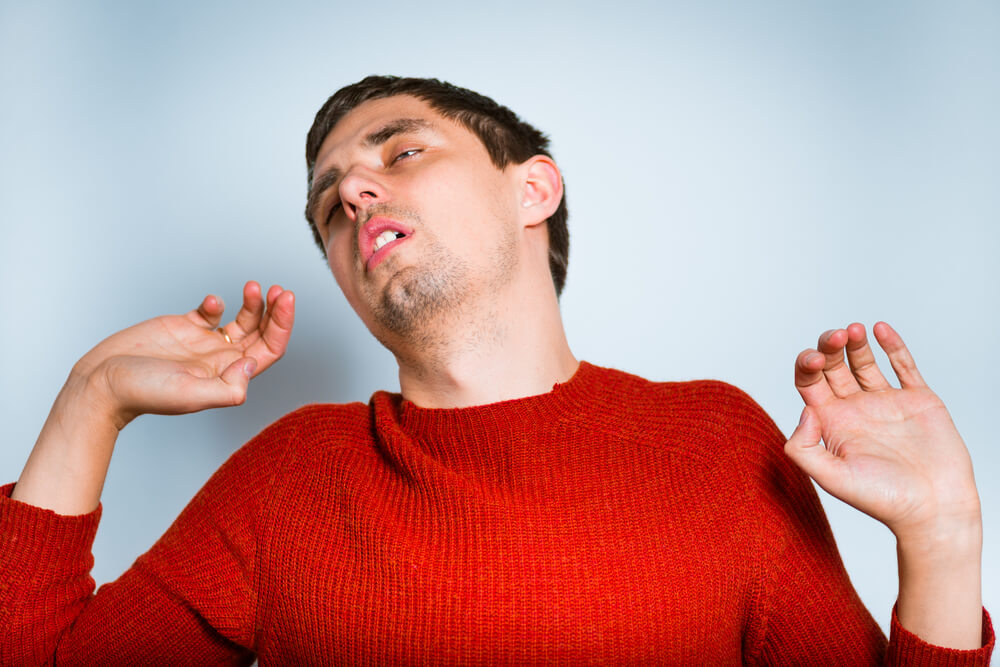
#5 Fatigue and Lethargy
A study by the U.S. Army Research Institute of Environmental Medicine showed that women who had ample amounts of water throughout the day displayed less fatigue and much happier moods than those who did not. The team did a separate study (not yet published) in men, which showed similar results.
When your body doesn’t get enough water, blood volume drops. This makes the heart work harder. Why? It needs to in order to get your body’s organs the oxygen and nutrients they must have to function. As the dehydration worsens, your body will direct the water to where it’s most vital. This means your skin—the organ that keeps you cool via sweat—will suffer the loss of water first. This lack of moisture in the skin will impede your body’s ability to release heat. That results in a spike in internal heat. And, that prompts lethargy.
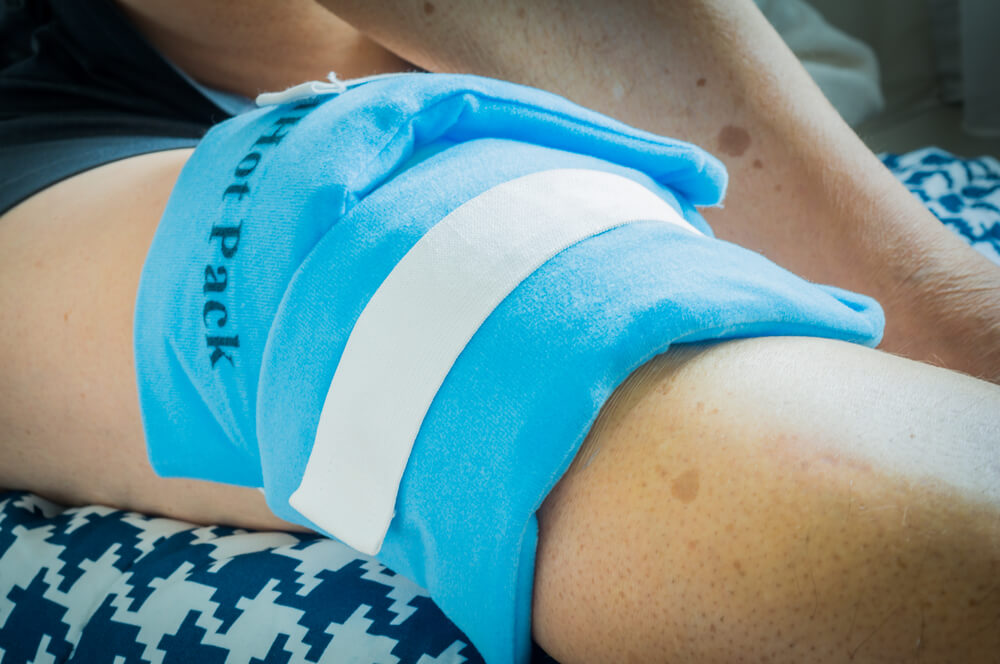
#6 Joint Pain
Cartilage (the firm, connective tissue found in joints) requires significant amounts of water to act as a lubricant in your joints. Cartilage cells naturally die and peel away as new cells are made. Because the cartilage is not nourished by blood vessels like bone is, it gets nutrients for reproduction from diffusion, which needs water transported by electrolytes. When you’re dehydrated, cartilage does not have enough water to stay wet and healthy. This causes it to become wrinkled. And, this causes a greater amount of friction when your joints move. The result? Painful joints.
Staying hydrated throughout the day gives your joints many benefits. Proper hydration expedites the diffusion process that gives cartilage the nutrients it needs to stay wet and healthy, allowing for easier joint movement. It also prompts the removal of waste from the joints that, when accumulated, can cause pain and inflammation.

#7 Poor Focus
Have you ever felt foggy in the head?
How about moments where you couldn’t focus?
Have you noticed your mind wasn’t as sharp as normal?
This is known as brain fatigue or brain fog. It’s often caused by dehydration. Because over 70% of your brain is composed of water, everything it does depends on sufficient hydration.
Studies show that if you’re only 1% dehydrated, you’ll likely have as much as a 5% decrease in brain functions. A 2% dehydration shows issues maintaining focus and with short-term memory. Water is what gives the brain the energy it needs to process thought, maintain concentration and produce hormones and neurotransmitters (the chemical messengers that transmit signals to your body). It also delivers nutrients to and removes toxins from the brain. This improves concentration and mental acuity.

#8 Dry Mouth and Bad Breath
Dry mouth, also referred to as cottonmouth, is a result of decreased saliva production. When you’re dehydrated, your body doesn’t have the water to produce enough saliva to keep your mouth moist. This can make swallowing and even speaking tricky. It could also lead to dental issues.
Bad breath, or halitosis, is often a result of dry mouth. It occurs when there’s decreased saliva in the mouth. Saliva works as a cleansing agent in the mouth. It reduces bacteria that thrive in the moist environment and helps eliminate bad breath. Because you don’t produce as much saliva when you’re dehydrated, bacteria growth increases and causes bad breath. Drinking plenty of water before bed and after you wake up will help you keep that morning “puppy breath” at bay.

#9 Heart Palpitations
Not getting enough water can even make your heart flutter. And, in this case, that’s not a good thing. Heart palpitations are the sensation that your heart is beating too fast, skipping a beat or fluttering. They’re most noticeable in the chest, neck or throat. These events can be rather frightening. They can come out of the blue or can be linked with certain activities or emotions.
Dehydration decreases blood pressure and causes changes in electrolytes. These changes put a huge amount of stress on your body. Studies have shown that even mild dehydration leads to higher cortisol (the stress hormone) levels. This amount of stress causes the irregular heartbeats that, if not monitored, can lead to more severe health issues.

#10 Food Cravings
Dehydration makes it hard for organs and some nutrients to release glycogens (the structure that represents the main storage form of glucose in your body) and other forms of energy storage. Why? They need water to do so. This can cause you to have cravings for particular foods. Sweet cravings are especially common because your body is experiencing a hard time producing glycogens.
The best way to curb these cravings is to drink a glass of water before you decide to give in and have the sweets. You could also try eating some fruits or veggies. Some of them are more than 90% water. Try strawberries, cucumber, bell peppers and (of course) watermelon.
These Are Easy Methods To Stay Hydrated
Staying hydrated is more important than we realize. It’s also not as easy as we think. It can be hard to drink water everyday, even when we’re exercising or partaking in outdoor activities. But, there are some easy ways to stay hydrated throughout the day.
Keep water at your desk or close to your work site. It’s much easier to remember to drink water when a glass is sitting right in front of you. Try adding a fruit/veggie and herb combo to your glass for a hint of flavor. If water isn’t your thing, you may want to consider getting IV therapy in New Jersey to rehydrate your body fast. Treatments take 30 – 45 minutes and leave you feeling revitalized and refreshed.
Drink water throughout your workout. A rule of thumb is to drink four to six ounces of water per every 15 minutes of exercise. For workouts longer than 60 minutes, try a sports drink to replenish the lost fluid and electrolytes.
Believe it or not, you don’t have to drink pure water to get your daily water intake. You can get a sufficient amount of water from adding other, tastier drinks like coconut water, sports drinks or even tea or black coffee (their dehydrating qualities have proven to be myths) to your diet. You can also get up to 20% of your advised daily water intake by eating water-rich fruits and veggies.
Conclusion
Dehydration is more harmful to our health than many of us realize. Chronic dehydration leads to health problems that can cause severe damage down the road. But, you now know many of the signs of dehydration. Heed these warnings. Practice better hydration habits. Doing so will ensure you stay hydrated throughout the day.
By Laura Bayard
Latest posts by Terry M (see all)
- Garage Gyms - Aug 1, 2018
- Kettlebells – Why They Should Be Added To Your Routine. - Jul 24, 2018
- Weight Belts: What Are They Really For? - May 31, 2018











[…] any signs of dehydration present themselves, they do require immediate medical attention. Of course all of these symptoms […]
[…] any signs of dehydration present themselves, they do require immediate medical attention. Of course all of these […]
[…] crucial to maintaining your hydration while using a plastic sweat sauna suit. If you don’t, you risk dehydration and other problems associated with […]
[…] loss quest in a number of ways. First, it helps you stay hydrated, and as long as your body remains hydrated it won’t retain water. So while you’ll increase your need to use the bathroom it will help cut […]
[…] by doctors, including if you have suffered a tear in your rectum, have an infection, are dehydrated and backed up, or if there is a significant change in your electrolyte balance. A significant […]
[…] by doctors, including if you have suffered a tear in your rectum, have an infection, are dehydrated and backed up, or if there is a significant change in your electrolyte balance. A significant […]
[…] by doctors, including if you have suffered a tear in your rectum, have an infection, are dehydrated and backed up, or if there is a significant change in your electrolyte balance. A significant […]
[…] by doctors, including if you have suffered a tear in your rectum, have an infection, are dehydrated and backed up, or if there is a significant change in your electrolyte balance. A significant […]
[…] by doctors, including if you have suffered a tear in your rectum, have an infection, are dehydrated and backed up, or if there is a significant change in your electrolyte balance. A significant […]
[…] by doctors, including if you have suffered a tear in your rectum, have an infection, are dehydrated and backed up, or if there is a significant change in your electrolyte balance. A significant […]
Thanks for sharing
it was useful
دکتر زنان و زایمان
[…] the soup diet, however, sodium fulfills the important requirement of electrolytes—which are paramount to one’s health when attempting such short-term diets. The hefty serving of […]
[…] eat. There are plenty of healthy drinks out there worthy of bodybuilding, but let’s focus on our hydration needs first and foremost. Even though protein shakes play an important role in muscle growth, we […]
[…] that can make it difficult to concentrate in the sport in which they participate, insomnia and dehydration. For now, which may seem like a small price to pay for the results you are looking for, the cost of […]
[…] can make it difficult to concentrate on the sport that they are participating in, insomnia and dehydration. At the moment that may seem a small price to pay to get the results that you are after, the cost […]
[…] can make it difficult to concentrate on the sport that they are participating in, insomnia and dehydration. At the moment that may seem a small price to pay to get the results that you are after, the cost […]
[…] can make it difficult to concentrate on the sport that they are participating in, insomnia and dehydration. At the moment that may seem a small price to pay to get the results that you are after, the cost […]
[…] can make it difficult to concentrate on the sport that they are participating in, insomnia and dehydration. At the moment that may seem a small price to pay to get the results that you are after, the cost […]
[…] can make it difficult to concentrate on the sport that they are participating in, insomnia and dehydration. At the moment that may seem a small price to pay to get the results that you are after, the cost […]
[…] can make it challenging to focus on the sport that they are taking part in, sleeping disorders anddehydration At the minute that might appear a little rate to pay to get the outcomes that you want, the expense […]
[…] can make it difficult to concentrate on the sport that they are participating in, insomnia and dehydration. At the moment that may seem a small price to pay to get the results that you are after, the cost […]
[…] can make it difficult to concentrate on the sport that they are participating in, insomnia and dehydration. At the moment that may seem a small price to pay to get the results that you are after, the cost […]
[…] which might make it tough to focus on the game that they’re collaborating in, insomnia and dehydration. In the intervening time which will appear a small worth to pay to get the outcomes that […]